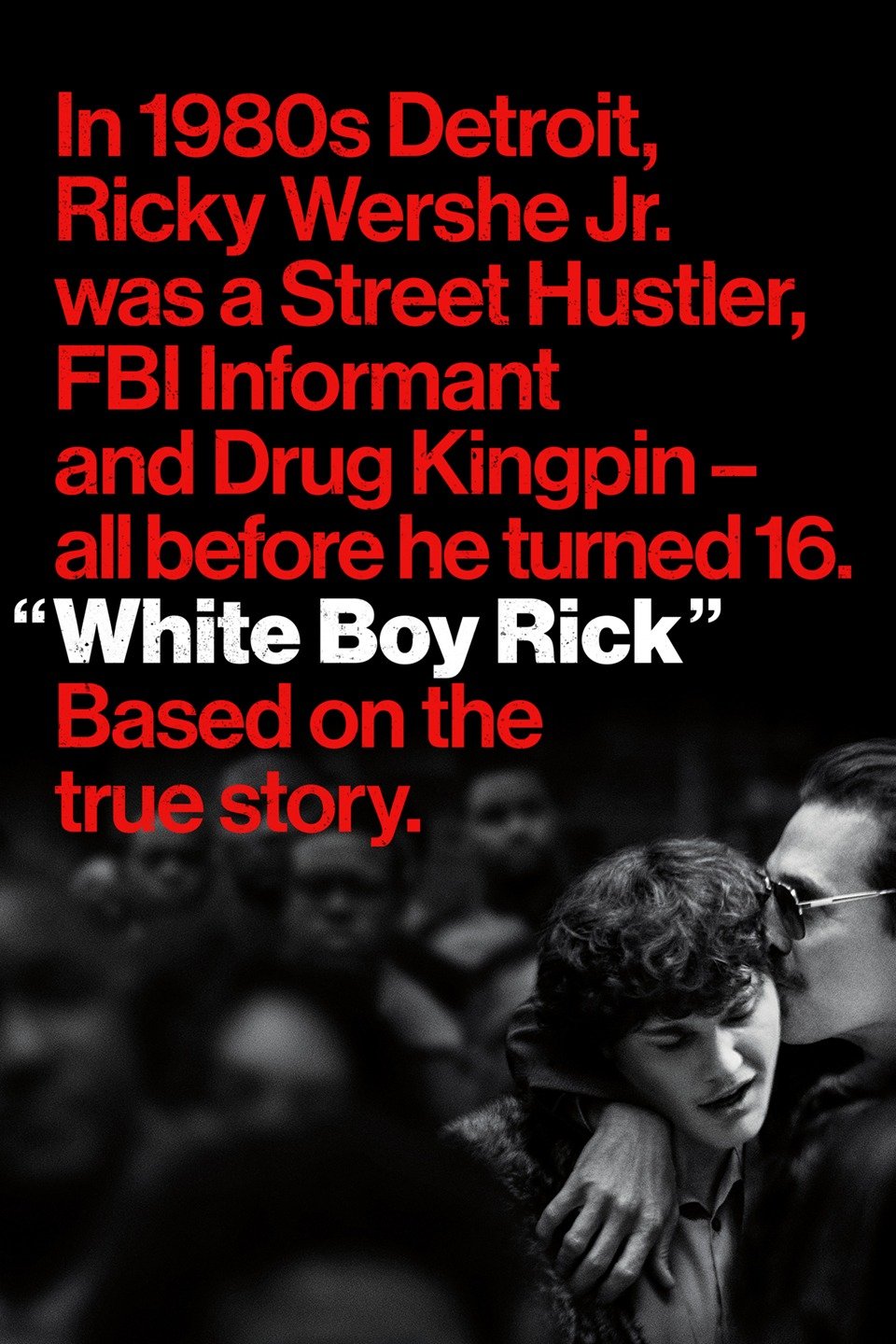
In case you didn't already think the justice system was problematic today, just remember 2 decades ago, the gave a teenager a life sentence after encouraging him to do the crime.
Growing up in a tumultuous Detroit in the 80s, Rick Wershe
would go on to be a substantial drug supplier as well as the youngest FBI
informant in history all before the age of 18 in a case that’s easily a
compelling illustration of just about everything wrong governmental
institutions and their failure to protect the society that the serve.
Covering the tale of these events before Wershe’s conviction
at the age of 17, “White Boy Rick’s” triumph in filmmaking above all else is in
the relentlessly depressing and oppressive manner in which it depicts the drug
addled and crime ridden Detroit of the era, an atmosphere that permeates the
entirety of the story.
Newcomer Richie Merritt’s portrayal of the titular young
kingpin manages to keep focus on the simplistic mindset of Rick, an adolescent lacking
ambition and book smarts on the surface, while making his struggle to work with
what he has in the most toxic of environments to pull together a family that he
loves that he is watching tear itself apart under that environment’s nigh
inescapable influence feel relatable and even noble in some regards, despite
the disgusting nature of exactly what he is doing.
Director Yann Demange’s attention to detail in atmosphere
and performances is nothing shy of commendable, efficiently utilizing his
talented cast to bring to life a world of people that are thoroughly unlikable
due to the nature of their career paths and life choices but nevertheless human
and even mildly sympathetic when the reality of Detroit’s tragic status quo
really gets beaten into your head.
Nowhere is this better presented than in the performances of
Wershe’s sister portrayed by Bel Powley, so heart wrenchingly impacted by
hardcore drug addict life style that she wouldn’t look out of place in a horror
movie, and his father played by Matthew McConaughey, who’s long mastered the
use of his charisma to the effect of improving the productions he’s a part of
and goes above and beyond as a man visibly frustrated by his failures as a
father but just as desperate to not give up no matter how dark it gets.
“White Boy Rick” has the making of a classic crime drama
that really boils to a head when its observations on the failings of
institutions sabotaging the desire of wholesome success by way of the justice
systems gross scapegoating of a teenager that they actively encouraged to do
wrong as a means to the end of their own questionable success are highlighted
front and center in the third act.
Unfortunately, despite the expert direction and acting at
play, the screenplay defaults on gangster film clichés that feel more
obligatory than organic.
The excellence of the production certainly helps to carry
the movie through but one can’t help the nagging suspicion that if the right
script doctor chopped out characters that don’t contribute much to the core
conflict throughout the movie while focusing on the crushing defeat presented
by Rick’s conviction, you’d have had a shorter, tighter, and infinitely more
focused feature than one that runs through a list of tropes that almost
contradict the tragedy the film attempts to convey.
By no means do these things sink “White Boy Rick” but they
do become a marked difference in what makes this movie ultimately average as
opposed to the great one that it could have been and that we desperately need
right now given the perception of criminals and the justice system that is in
need of some sort of reform.
While it’s certainly not the Oscar contender that it could
have been however, it’s actually a bit of a pleasant surprise as far as
September releases go.
7 Dime Bags out of 10
No comments:
Post a Comment